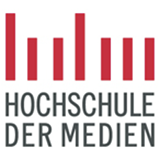Introduction
Hochschule der Medien is located in Stuttgart, Baden-Württemberg, Germany. It is a public university focusing on education and research in the field of media. It is committed to cultivating all kinds of media professionals, covering a full range of media expertise from print media to electronic media, from media design to media management.
Overview
Student size: Currently, there are more than 5,000 students studying here.
Major settings: The school offers about 30 accredited bachelor's and master's programs, including but not limited to audiovisual media, digital media, media management, media design, information science, print media technology and other majors, covering all aspects of the media industry.
History and establishment time
The school was formed on September 1, 2001 by the merger of the former Stuttgart University of Printing and Media (Hochschule für Druck und Medien) and the Stuttgart University of Library and Information Science (Hochschule für Bibliotheks- und Informationswesen). Among them, the history of education in the field of printing and media can be traced back to 1853, when the technical school began to train professionals in book printing. After continuous development, the University of Applied Science of Printing was established in 1972, and the first batch of media technology engineers began to be trained in 1979.
School Strength
Teaching Staff: It has a team of teachers with rich professional knowledge, teaching experience and industry practice experience. They can provide students with in-depth theoretical guidance and practical experience sharing, helping students to better master professional knowledge and skills and adapt to the development needs of the media industry.
Teaching Resources: The school is equipped with advanced teaching facilities and equipment, such as libraries, laboratories, studios, etc. Its library is a professional scientific library, which collects and provides a large number of professional information resources of print and digital media, providing strong support for the teaching and research of teachers and students.
Institutional nature
Public university.
Educational philosophy
Cultivate professional talents: It is committed to becoming a scientific and educational institution for cultivating media professionals, and cultivating professional talents and managers for various media-related activities in the economic and public sectors.
Promote personality development: It regards itself as a platform for students' personality development, focuses on cultivating students' comprehensive qualities, including responsibility, analytical thinking ability, willingness to act, teamwork ability, etc., to promote students' all-round development.
Emphasis on application orientation: The curriculum is closely linked to the needs of the professional field, and is constantly updated to adapt to industry changes. Through high-quality teaching equipment and resources, it provides students with solid, application-oriented professional training.
Promote innovation and internationalization: As part of the innovation system of the media industry, the school actively organizes the creation and dissemination of knowledge and supports the entrepreneurial activities of students and graduates. At the same time, international development is incorporated into the curriculum system to cultivate students' foreign language ability, promote students' participation in international exchanges, and enable them to work in an international environment.
Key laboratories and disciplines
Key disciplines: Electronic media, information and communication, printing and media and other disciplines are the school's key development disciplines, with high levels and characteristics in teaching and research.
Key laboratories: The school has a number of professional laboratories and research centers, such as the Media Technology Laboratory and the Information Science Laboratory, which provide students with a platform for practical operation and scientific research innovation, and support students to conduct in-depth research and practical exploration in the fields of media technology, information processing, media design, etc.
Department
The school has departments such as the School of Electronic Media, the School of Information and Communication, and the School of Printing and Media. The departments cooperate and integrate with each other to jointly build a complete media education system.
Ranking
The school does not occupy a prominent position in the international comprehensive university rankings, but it has a high reputation and influence among media schools in Germany, and has won a high ranking in the rankings of relevant media schools. Good grades, such as being rated as one of the best media universities in Germany.
Expenses
Tuition fees: For students from the EU/EEA, most professional courses are usually free of charge; for international students from non-EU/EEA, a tuition fee of 1,500 euros per semester is required from the winter semester of 2017/2018.
Living expenses: In Stuttgart, students' monthly living expenses are about 800-1,000 euros, including expenses for accommodation, food, transportation, and school supplies.
Campus
Campus location: The campus is located in the Stuttgart-Weihengen district, on the outskirts of the capital of Baden-Württemberg. It has a beautiful natural environment and recreational areas such as parks, such as "Rottwild Park", "Bear Lake" and "Bear Castle", which provide students with a comfortable learning and living environment.
Campus facilities: In addition to modern teaching buildings and libraries, the campus also has a language center, which offers a variety of language courses from elementary to advanced levels each semester to meet students' different learning needs and research requirements.
-

Heidelberg University
-

University of Freiburg
-

University of Jena
-

University of Marburg
-

University of Rostock
-

University of Bayreuth
-

University of Halle-Wittenberg
-

Leipzig University
-

University of Tübingen
-

Humboldt University of Berlin
-

Mesoamerican University
-

Istmo University
-

Mariano Galvez University of Guatemala
-

Regional University of Guatemala
-

Galileo University
-

Francisco Marroquín University
-

Rafael Landívar University
-

University of the Valley of Guatemala
-

University of San Carlos of Guatemala
-

Technological Institute of Tlaxcala Plateau
-

Golfo University
-

Technological University of South Sonora
-

Technological University of Huejotzingo
-

Tizimín Institute of Technology
-

Chilpancingo Institute of Technology

